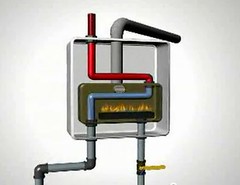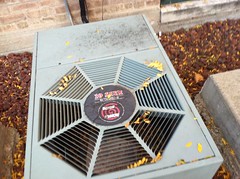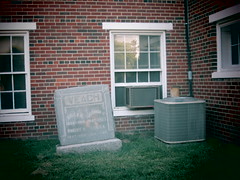Air Conditioning- The History Of Air Conditioning
It is so easy in the modern world to take air conditioning for granted. With the advances in technology is now virtually unheard of for air conditioning not to be used in any group building. everywhere where potential customers are being courted for their business, it would be very unwise to leave them in a state of extreme discomfort, due to the failure to keep the building's facilities in line with the competition. In government buildings, failure to sound a comfortable environment would reflect very badly on those who are responsible for the upkeep of the construction and, by association, the agency that utilises it.
Air Conditioning- The History Of Air Conditioning

Air Conditioning- The History Of Air Conditioning
Air Conditioning- The History Of Air Conditioning
Air Conditioning- The History Of Air Conditioning
It has not always been this way. Air conditioning was, in days gone by, a maintain of the rich. Even as far back as ancient Egypt and ancient Persia, some form of primitive air conditioning theory was in use in the palaces of the wealthy aristocrats. These early air conditioning units were based on using water, sometimes in conjunction with cold air, to cool the brickwork of the buildings. This kind of use for a valuable reserved supply such as water, especially in the desert, was extravagant in the extreme and obviously only ready to the ruling classes.
The major breakthrough in the history of air conditioning came from the noted British creator and scientist Michael Faraday. Faraday's study proved that it was potential to compress and melt ammonia and then use the liquefied ammonia to cool the air by having it evaporate. It was nearly a century after Faraday, however, that the first serious application of this kind of technology was seen. This was not used to control the temperature of rooms, but to regulate temperature and humidity in industrial printing processes. Air conditioning technology evolved from this, to be applied in the regulation of temperature in rooms and buildings.
The term "air conditioning" did not nothing else but exist until 1906. Stuart W. Cramer, a textile mill owner, first used it. Cramer had been experimenting with ways to ameliorate the effects of the dry air created by his industrial processes. The patent he filed had used the term in conjunction with "water conditioning", which had already become a familiar and often-used term in the textile industry. The new developments that Cramer instigated had a dramatic ensue on the air capability within his factory and, as a direct consequence, on productivity.
In recent years, the prestige of air conditioning technology has taken a severe blow. The gases used in the early days of air conditioning were very similar to the ammonia first used by Michael Faraday. These very toxic chemicals were potentially lethal should they have escaped into the atmosphere. It was obviously valuable to try to furnish a far safer alternative. The types of gas advanced in the 1920s - chlorofluorocarbons and hydro fluorocarbons - were far safer to human beings and were used in many different types of air conditioning theory in the twentieth century. Towards the end of the century it emerged that these gases were harmful to the earth's ozone layer and again the need has arisen for alternatives to be developed. Amid an ever-greater awareness of environmental impact new non-harmful gases have been advanced and many of the old ones have been phased out. The time to come of air conditioning now looks promising, with ozone harming gases eliminated and a commitment to enhancing the vigor efficiency of air conditioning systems.
Air Conditioning- The History Of Air Conditioningmanual ice crusher Timberland Hiking Boots Rock & Republic Womens Jean





